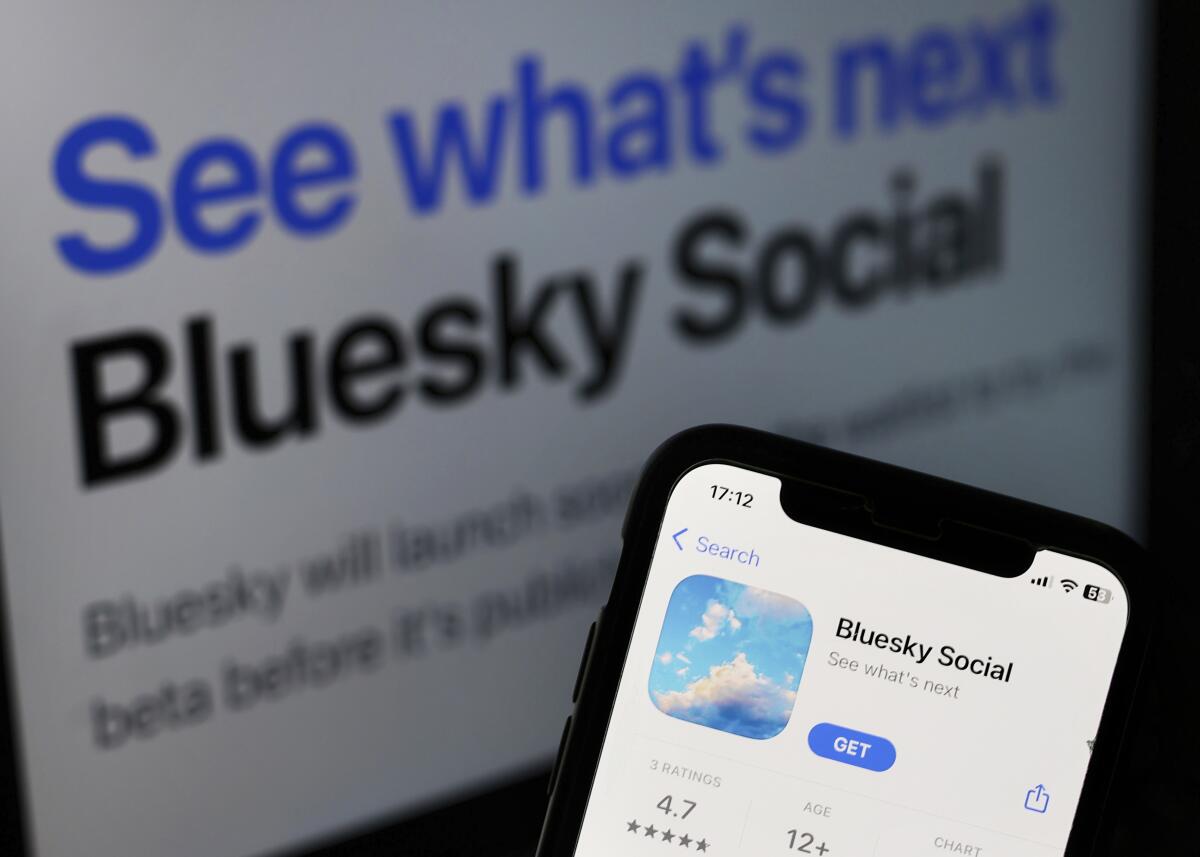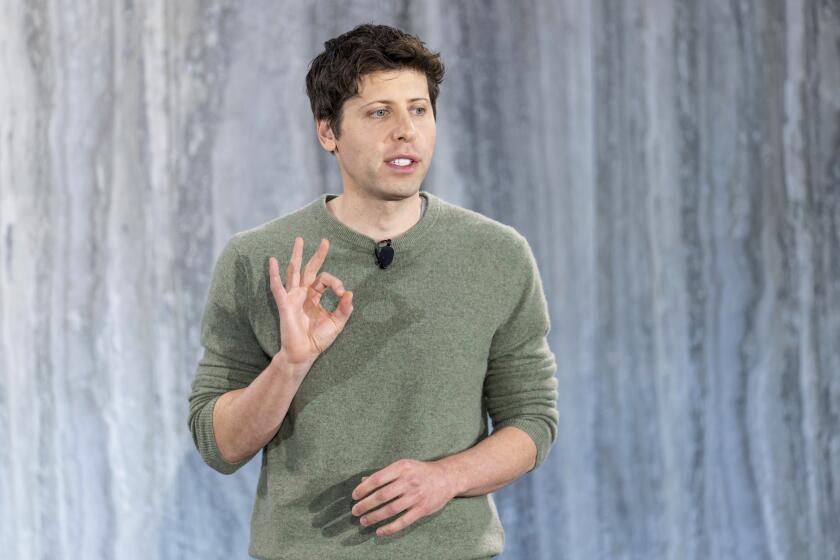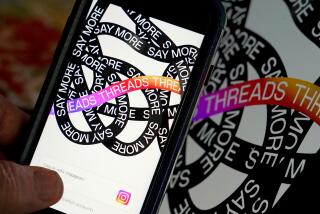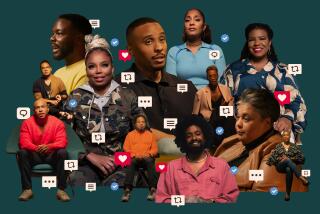Column: Bluesky evokes nostalgia for the days when social media was fun. But is that enough?

The buzziest startup in Silicon Valley in May of 2023 is not an AI outfit or a metaverse play. Itâs a glitchy copy of Twitter, circa 2013. I spent the last week on the surging social media upstart Bluesky trying to find out why, and discovered something alarming: Weâve entered social mediaâs reboot phase.
Bluesky looks and feels just like Twitter did 10 years ago, and thereâs a reason for that: It was born in the belly of the bird app. Funded as an in-house initiative by former Chief Executive Jack Dorsey, Bluesky began in 2019 as an effort to build a protocol for a decentralized social network â basically, a way to make social media work more like email, where different clients such as Gmail and Outlook can talk to each other.
When Elon Musk took over, he cut it off from Twitter, and now, ironically, Bluesky may become Twitterâs most viable direct competitor. Many have never been more eager to find a Twitter alternative, after all, given all the ways Musk has made it more unpleasant to use. In March, when Bluesky launched in invite-only beta, few had even heard of it. Last week, when thousands of people got those invitations, suddenly, in online and techie circles, at least, AI was on the sidelines, and it was all anyone was talking about.
Itâs tempting to write off Elon Muskâs bad business decisions, such as trying to charge Twitter users for blue checks. But his naked cash grab is part of a sea change we should all take seriously.
When I logged on Thursday, it was to the kind of wild, elated scrum thatâs all but become extinct on mainstream social networks in the 2020s. Every refresh brought genuinely inscrutable memes, posts from an AI duck account that spewed gibberish, and a torrent of nude selfies. There were reconnections between old online friends, an aggressive pile-on of a well known writer, and wide-eyed celebrity and politician accounts just posting through it all.
Bluesky is shamelessly derivative and rudimentary. Instead of tweets you send âskeets,â threads are called ropes and thereâs no direct messaging. Itâs a raw and unfiltered flood of content. At its best (and maybe also its worst) social media is like tapping into the live-wire id of a thick slice of humanity. Itâs funny, thought-provoking, gross, libidinal, and infuriating, all at once. Thatâs Bluesky right now.
The best reference point, again, is early-days Twitter; Iâm old enough to remember logging on in the late â00s and being lost and faintly dumbstruck by the scene there. Earnest news items ticked past inscrutable jokes that disappeared behind someone getting furious at an airline company. Gleeful, barely controlled chaos.
Being on Bluesky is like that, but, for a lot of users itâs paired with a heaping dose of nostalgia for that experience, for what now looks like the golden age of social media. Users love it, I think, because it feels like a homecoming. Even the glitches, such as a bug that lets bots drag you into endless âropesâ â lovingly termed hellthreads â are cheered as communal events. For some reason, one day, everyone posted interminably about âALF,â the 1980s sitcom about a wacky alien.
This kind of jubilant, unhinged environment is what people who spend all day online live for â even if, ultimately, weâve all been here before and we have a sense of where itâs inevitably going.
Itâs no accident that the most exuberant and vocal promoters of Bluesky are famous 30-something millennials who are also famously proficient social media users: folks like Rep. Alexandria Ocasio-Cortez, âStar Warsâ director Rian Johnson, NBCâs Ben Collins, and the model Chrissy Teigen. Other major Twitter users, like the semi-anonymous absurdist comedian Dril, the Washington Postâs Taylor Lorenz, CNNâs Jake Tapper and the New York Timesâ Jamelle Bouie, got accounts too, and some have been skeeting a lot.
This was Blueskyâs greatest coup, along with being open for business as Twitter was jumping its rails. Whether by design or not, it managed to get all of these users in the door at the same time. Insofar as something as infrastructural as a social network can feel like an exclusive, trendy club, Bluesky does, giving users the feeling that first drew so many to social networks in the first place: that sense that youâre in a room with a congressperson or a Hollywood star or a major writer, and that no decorum is required to participate â and in fact it would be preferred if you checked it at the door.
ChatGPT and other new AI services benefit from a science fiction-infused marketing frenzy unlike anything in recent memory. Thereâs more to fear here than killer robots.
Itâs working. People are reportedly shelling out $400 just to land an invite to jump the velvet rope.
But so far, Bluesky is all vibes and circumstance â the experience has been defined entirely by the community that showed up here, which means itâs exceedingly precarious. Itâs fun if youâre a certain kind of terminally online poster or someone who misses the early days of Twitter.
Still â and maybe Iâm just a cynical veteran of the blog wars of the 2010s â itâs hard for me to imagine spending lots of time on yet another social platform, building up yet another network, performing yet another self. Especially when we still know so little about how the company behind it plans to manage its playground.
Right now, Bluesky is, intentionally, a Twitter clone with a grand vision for infrastructure but not for community. Its chief aim is to build its decentralized protocol that will let others build their own social media sites. I donât get the sense that more than a tiny handful of the current user base â which remains small, comparatively, at 55,000 or so âcares much about that. They like Bluesky because it feels like old Twitter, because they are free to post what they want for the moment, and because Elon Musk is nowhere in sight.
Thatâs more than fine; part of Blueskyâs mission is also to try to make people care. But itâs not obvious how the company plans to govern itself or, say, make money on its decentralized fiefdom. How is it going to try to generate revenue? Is it looking for venture capital? Does it already have venture capital? Twitter paid Bluesky $13 million, but itâs unclear whether thereâs additional funding or where it might come from. (Call me a skeptic â and I have engineer friends who like what Bluesky is designing â but I worry that the decentralization structure gives the company an easy way to pass the buck on tough policy calls under the guise of âthe tech will solve it, eventually.â)
All this feels as though it should be important for both users, who just endured a decade of social media pursuing business models that supercharged toxicity, and the company itself, which seems to prize progressivism and transparency, and is about to face a battery of fresh tests. It should at the very least have detailed plans in place to ensure the safety of its users and the openness of the platform. Ideally it will have more of a vision and ideas about the kind of place it wants to be â and not settle for being a reboot.
Because this frothy honeymoon period isnât going to last. Bluesky got insanely buzzy because a just-small-enough group of internet culture creators who all have relatively compatible politics and pop cultural tastes took over the app at the right time. Itâs both freewheeling and relatively civil. Itâs guaranteed to be fleeting.
There have already been a couple of brush-ups with content moderation crises. When the polarizing writer Matt Yglesias signed up, his replies were flooded with people trying to chase him off the platform. One threatened, perhaps jokingly, to kill him with a hammer. That user was banned. Another account that joined over the weekend started harassing trans users; Blueskyâs CEO Jay Graber personally made a show of banning that poster too.
Musk, a self-styled âfree speech absolutist,â has banned an entirely new category of speech. That he hasnât gotten more blowback speaks to both how tired people are of seeing him and his antics take center stage.
Everyone cheered. Her dedication to staking out an active presence on Bluesky is admirable â she routinely engages users asking questions â even if this sort of whack-a-mole strategy is only going to last for so long, as Iâm sure she knows. (They did decide to remove all nudes from the âWhatâs Hotâ tab, perhaps in a bid to get the prudish Apple to approve the app.) The platform will grow, and the imposition of norms and rules will inevitably alienate some and make others mad, and, as Bluesky users are constantly pointing out, there is a legion of trolls at the gates, licking their chops, waiting to cause mayhem, forcing the kinds of moderation decisions that spoil the party just because they can.
What is Blueskyâs strategy then, when the nostalgia-fueled halo of posting like it was 2014 is wearing off, when trolling has begun in earnest, the moderation policies are disappointing everyone, and Twitterâs still-formidable network effect is pulling users back into its maw? Will Bluesky be able to stand alone? Or will it go down as a fun diversion, a time when a few thousand of the best Twitter users got to relive their glory days for a while?
Hoping to better understand her thinking around these matters, I skeeted to Graber asking how Bluesky plans to weather the coming days â about its governance, about plans to seek investment or how it might generate revenue â but got no reply.
I knew I was being a buzzkill. On the Whatâs Hot tab, people were sharing thirst traps, mocking Twitter, reveling in the freedom to get weird. I donât blame her for not skeeting back; nobody else did, either. They were too busy posting.










